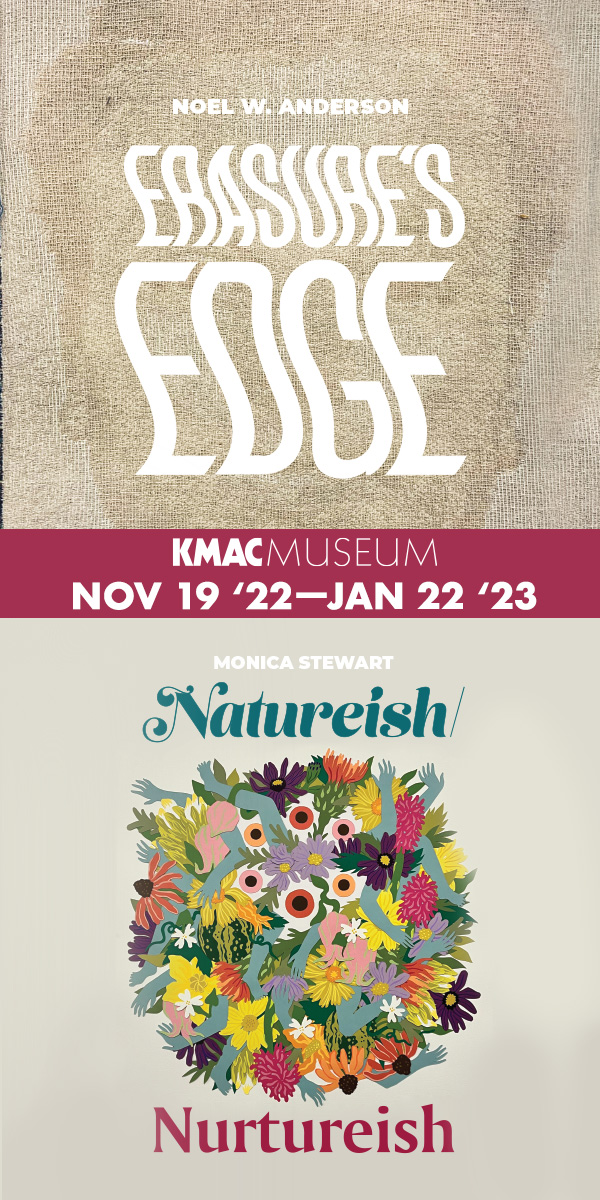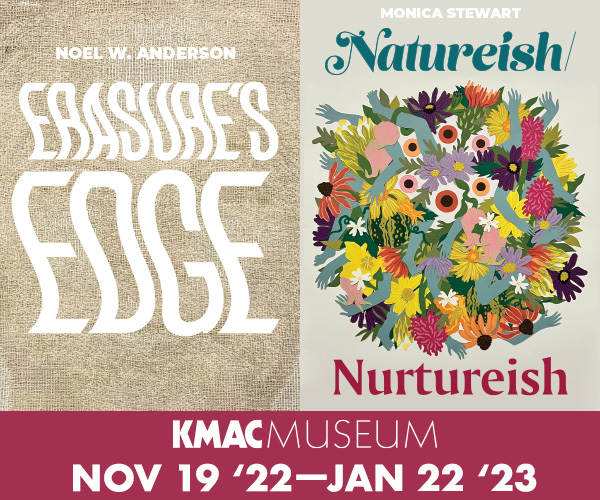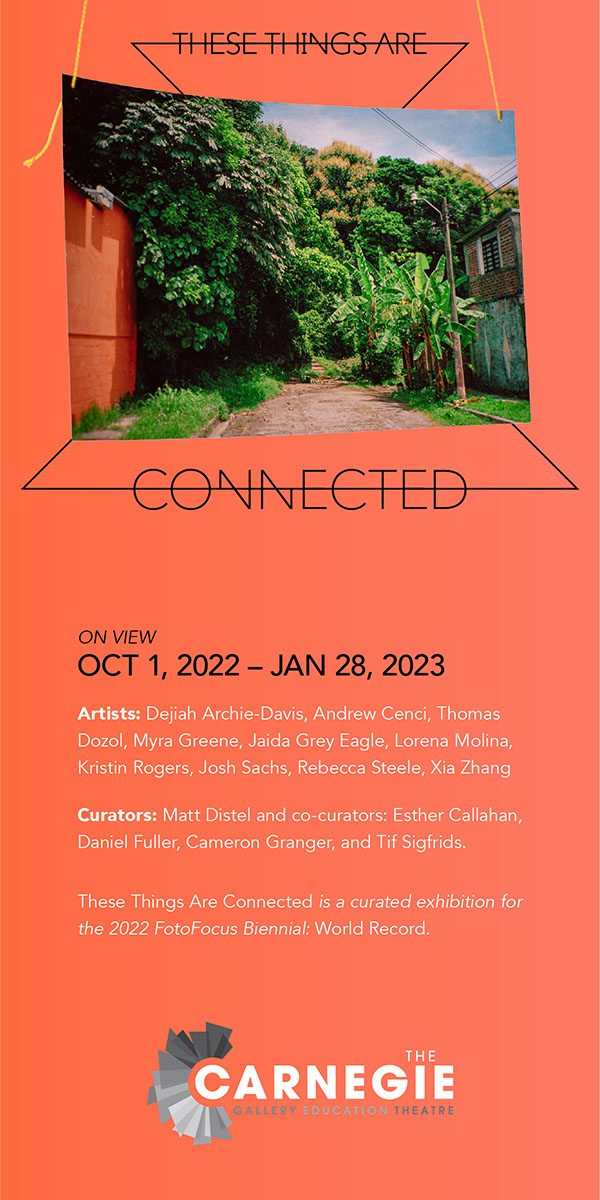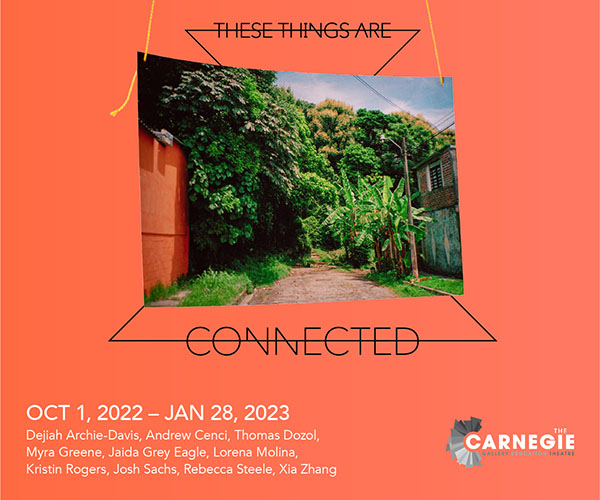Back on American soil for only a few hours, Brian Krock is already feeling the tension and anticipation that comes from life in New York.
“My anxiety has really spiked and I just got back. The city just has an anxiety provoking thing about it.”
But the saxophonist has translated a New York existence into a remarkably fruitful and far-reaching career, from initial gigs in orchestras for Broadway shows to a current juggling act of several adventurous jazz projects. One, as part of former Bad Plus pianist Ethan Iverson’s ensemble for a Beatles-rooted ballet called “Pepperland,” had him traveling Europe for the past seven weeks (“One of the longest periods I’ve spent away from home”). Another is a project of his own, a stylistically daring quartet called liddle, that he will bring to Lexington for a May 15 performance at J. Gumbo’s.

Photo Credit: Desmond White
“Like everyone else who lives here, I have a love/hate relationship with New York,” Krock said. “But like any other job, you can’t just jump in and immediately do your best work. You have to work your way up. So I feel lucky that I’ve had a variety of really challenging gigs so far in my life, from subbing on Broadway to teaching private music lessons and doing music copying and editing.
“There are the financial constraints of living in such an expensive place, meaning that we all need to have a million different hustles. It can be really hard, but it forces you to grow pretty quickly. It can make you think, ‘What could I possibly have to offer that isn’t already here?’ But then having to constantly wrestle with that question also forces you to think really hard about who you are and what is that you want to contribute to the world of music.”
The liddle things
To understand the band liddle, you first need an introduction to Big Heart Machine, an 18 member troupe assembled by Krock that meshes horn orchestration, free-informed dissonance, pop overtones and much more. The rhythm section of that ensemble – guitarist Olli Hirvonen, bassist Marty Kenney and drummer Nathan Ellman-Bell – form the touring version of liddle. But the smaller group actually predates the larger one.
“It wasn’t called liddle at the time,” Krock said. “I had a band for years called Heart Machine. Then when I expanded that, I decided to call it Big Heart Machine. The rhythm section of Big Heart Machine includes pretty much my closest friends. They’re the guys I go get a beer with and talk life with.
“We spent a lot of our time these past few years rehearsing together because the music was so complex and required a lot of practice. We didn’t really approach the project with any goal necessarily. I just wanted music that would give us challenges we could work towards that would also play to my friends’ strengths. Olli, Marty and Nathan are growing into their own artistic aesthetics as leaders and as composers, so I wanted to write music for them.”

Photo Credit: Luke Marantz
Within the broad soundscapes of the quartet’s debut album, “liddle,” which was released April 26, the music shifts from the Zappa-like bounce and eventual electric glide of the opening “Flip” to the spacious fusion cool of “Memphis” to the dizzying sax runs in a playful update of “Opus 23b” (a 1974 composition by one of Krock’s prime musical heroes, Anthony Braxton). Topping it all is “Please Stop,” a fascinating requiem of sorts that closes the album in an ambient wash of guitar and bass clarinet.
Krock’s prefers not to view the album’s many styles in specific or separate terms. He sees it all as part of a more singular musical vocabulary for liddle.
“We, as jazz artists, are obligated to deal with all of the history we are aware of that has come before us. So I don’t try to make value judgements. ‘Is this atonal? Is this tonal? Is this swinging? Is it fusion? Is it heavy? Is it straight ahead? Is it free?’ I love all of those kinds of music. They all inform who I am, so I guess the fact that it’s the same four people playing the music is what ties it all together.
“But I hope, as a listener, you will go through a journey with the music, where the contrasts between the individual songs will highlight what is interesting about them. For example, ‘Please Stop’ is really tonal. It almost has a folk song quality. I love having that at the end of the record as a sort of cleansing thing after you’ve heard all this chaotic and crazy music. That song gives you a chance to come back to reality. I guess I just didn’t try to overthink things.”
Jazz and Joyce
One of Krock’s foremost artistic inspirations isn’t a jazz artist at all, yet it figures in the designs of at least two songs on “liddle.” It comes from the famed Irish writer and poet James Joyce. The quirky piano/reed rumble “Saturnine” references “A Painful Case” while the gently unsettling ensemble skirmish “Spondulics” takes its name from “Ivy Day in the Committee Room.” Both Joyce works are part of his 1914 short story collection “Dubliners.”
Perhaps fittingly, the day we spoke with Krock began with the saxophonist in Dublin.
“I went crazy with the James Joyce sightseeing. I basically did Bloomsday (the city’s annual Joyce celebration), even though that happens in June. I did it on my own. I visited all the places that are in his books. I visited the Martello Tower that he lived in for awhile, which is in Sandycove. But I also spent the entire seven weeks of the Pepperland tour working my way through Richard Ellmann’s famous biography of James Joyce, which is a masterpiece.
“While I’m deeply fascinated and inspired by Joyce. I’m not really interested in trying to mimic his style in my music, that sort of stream of consciousness writing that was very controversial but sort of made him famous. But I am interested in the grandiosity of his ideas and the rigor with which he follows through with them. He spent 10 years writing ‘Ulysses’ and then spent 17 years writing ‘Finnegans Wake.’ As his plans for his books developed, he was forced to study all kinds of different things, from Latin and Greek to completely other disciplines. He let every aspect of his real life bleed into his work. So all of those and more are things I try to emulate in my life. There is a lot of stuff you wouldn’t want to emulate, of course. He had a lot of dark struggles, but his work invites you, as an audience member, to participate in a really interesting way.
“He actually said something that sounds very egotistical and arrogant, but is also kind of amazing. He said his challenge for his audience was to for people to spend their entire lives engaged with his work. I mean, I’ve spent maybe 10 years engaged with his work, reading and re-reading it. It’s challenging and it forces you, as a reader, to view parts of your own psyche that maybe you don’t like. It’s not necessarily fun all the time. Sometimes, they’re a drudge to get through. But I think after engaging with James Joyce’s work, I’ve grown in some way by knowing a little bit more about myself. That’s a pretty high hope for my own work, but at least it’s something to strive for.”
The crystalized idea
With Iverson’s Pepperland tour of Europe complete and liddle, briefly, on the front burner within a career that is continually in New York motion, Krock feels content with the artistic progress he is making and the general acceptance of his myriad performance related projects.
Specifically, the word he used most often in describing such development was “lucky.”
“Living and working in New York is sort of like a pressure cooker that forces you to spread out all the things that aren’t important. It leaves you with a crystalized idea of what it is that your goals are. So with each recording project and each opportunity, you get a little bit closer. You sort of chip away at the big marble rock that you’re hoping to turn into a beautiful sculpture. Every year, it gets a little bit better.
“I’m very lucky to be working with so many heroes, having had the chance to work closely with (Canadian born, Brooklyn based composer and bandleader) Darcy James Argue, Ethan Iverson and (New York by way of Pennsylvania pianist, composer and improviser) Matt Mitchell. I’m also lucky to get to work with my peers and my best friends, like Olli and Marty and Nathan, and on top of that to be able to make a living. I’m lucky not to have to have a day job anymore.
“For those things, I’m very grateful. So, yeah, I’m just going to keep on doing my best and enjoy the ride.”
+ Brian Krock’s liddle performs at J. Gumbos Lex, 808 North Limestone at 8 p.m. May 15. Admission is $10 for the concert only and free to dinner customers. For reservations, call 859-286-9239.




